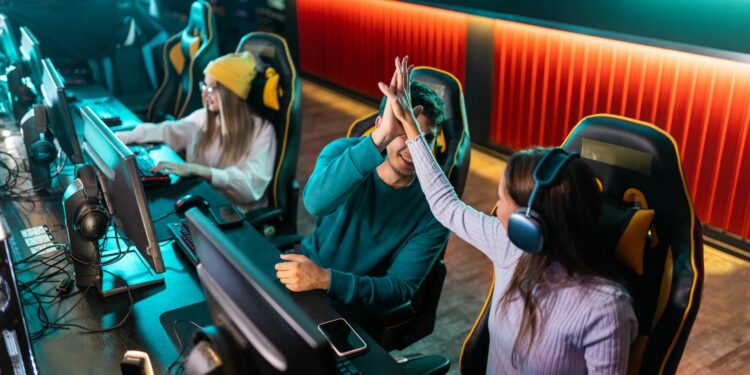The gaming world has always been a battlefield where skill, strategy, and determination reign supreme. However, with the rise of Pay-to-Win (P2W) models, a new dynamic has emerged that challenges the traditional notion of fair competition. In many online games, players are now able to purchase advantages that can significantly impact gameplay, leading to a growing tension between those who rely on skill and those who are willing to open their wallets. This article explores the ongoing battle between Pay-to-Win mechanics and player skill and what it means for the future of IDN Poker gaming.
The Rise of Pay-to-Win Models
Pay-to-win systems have become increasingly prevalent in poker online gaming, particularly in free-to-play titles. These models allow players to purchase in-game items, boosts, or abilities that can give them an edge over others. While these systems are designed to generate revenue for developers, they have sparked considerable debate within the gaming community.
For many players, the introduction of P2W mechanics feels like a betrayal of the core values of gaming. Traditionally, success in games has been determined by a player’s skill, dedication, and strategy. With P2W, however, financial investment can overshadow these factors, allowing less skilled players to gain advantages that would otherwise require time and effort to achieve.
The Impact on Competitive Balance
One of the most significant concerns about Pay-to-Win systems is their impact on competitive balance.

In games where skill should be the primary determinant of success, P2W mechanics can create significant disparities. For example, in a competitive shooter, a player who purchases a more powerful weapon or enhanced armor may have an advantage that no amount of skill can overcome.
This imbalance can lead to frustration among skilled players who feel that their efforts are being undermined by those who choose to pay for advantages. It can also erode the integrity of the game’s competitive scene, as victories are no longer purely a reflection of a player’s abilities but may instead be influenced by their willingness to spend money.
The Resilience of Skilled Players
Despite the challenges posed by Pay-to-Win systems, skilled players often find ways to thrive. For many, the presence of P2W mechanics is just another obstacle to overcome. These players focus on mastering the game’s mechanics, developing strategies to counteract the advantages of paying players and refining their skills to remain competitive.
In some cases, skilled players can even turn the tables on those who rely on P2W. By leveraging their deep understanding of the game, they can outmaneuver or outthink opponents who may have superior equipment but lack the same level of skill or experience. This resilience highlights the enduring importance of skill in gaming, even in the face of financial advantages.
The Future of Pay-to-Win and Skill in Gaming
As the gaming industry continues to evolve, the tension between Pay-to-Win mechanics and player skill is likely to remain a hot topic. Developers are increasingly aware of the backlash against P2W models and are exploring ways to balance monetization with fair play. Some are shifting towards cosmetic-only microtransactions or offering skill-based rewards that cannot be purchased, ensuring that success remains tied to a player’s abilities.

The future of online gaming may see a return to a focus on skill, with developers recognizing that long-term player engagement is best achieved through fair competition. As players continue to voice their concerns about P2W systems, the industry will need to adapt to meet the expectations of a community that values skill and integrity.
Conclusion
The battle between Pay-to-Win and player skill is a defining issue in modern online gaming. While P2W models offer a lucrative revenue stream for developers, they also challenge the fundamental principles of fair competition. Skilled players, however, continue to demonstrate that true mastery of a game cannot be bought and that, ultimately, skill remains a critical factor in achieving success. As the industry moves forward, finding the right balance between monetization and fairness will be crucial in ensuring the long-term health of online gaming.
















